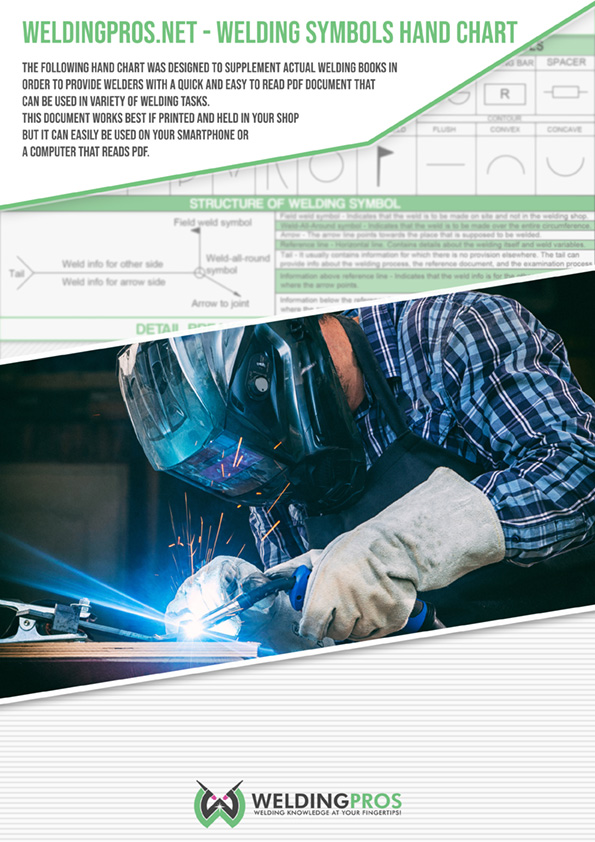Being an underwater welder is a lifestyle, not a career. Especially if you want the big bucks. It is not true that you will get rich doing every kind of underwater welding. This type of welding does pay better than surface welding but if you want the money on the extreme end of the spectrum then you will need to “pay” for it. There are multiple types of water welding.
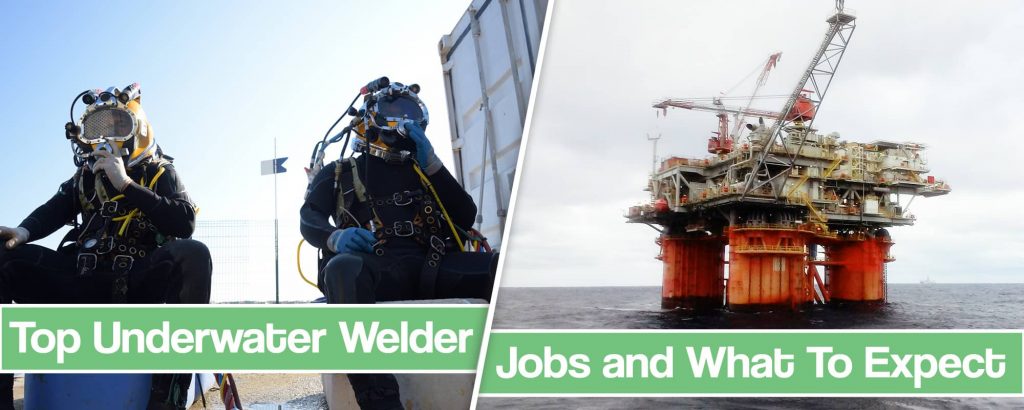
Some of them pay much more than others.
However, on average, all of these jobs are more dangerous and difficult than surface welding jobs. Experience, danger, water conditions, distance from the shore, depth of dive and many other factors will determine how much you will get paid. It will also determine what underwater welding job is the best for you.
Not everyone is a superman. That’s fine. There are many ways to be a part of this work and in this article, we are going to go through everything so that you can get a better idea of where can you fit in and earn as much as possible.
How Much is an Underwater Welding Salary?
Let’s address this burning question that most welders have. Money, our greatest motivator. Right?
Well unfortunately I have to disappoint you a bit here. You are unlikely to get rich doing this if you don’t stick around for a longer period of time, learn the ropes, bust your ass off and really really love being a commercial diver.
When you first start off, you will have a low hourly wage.
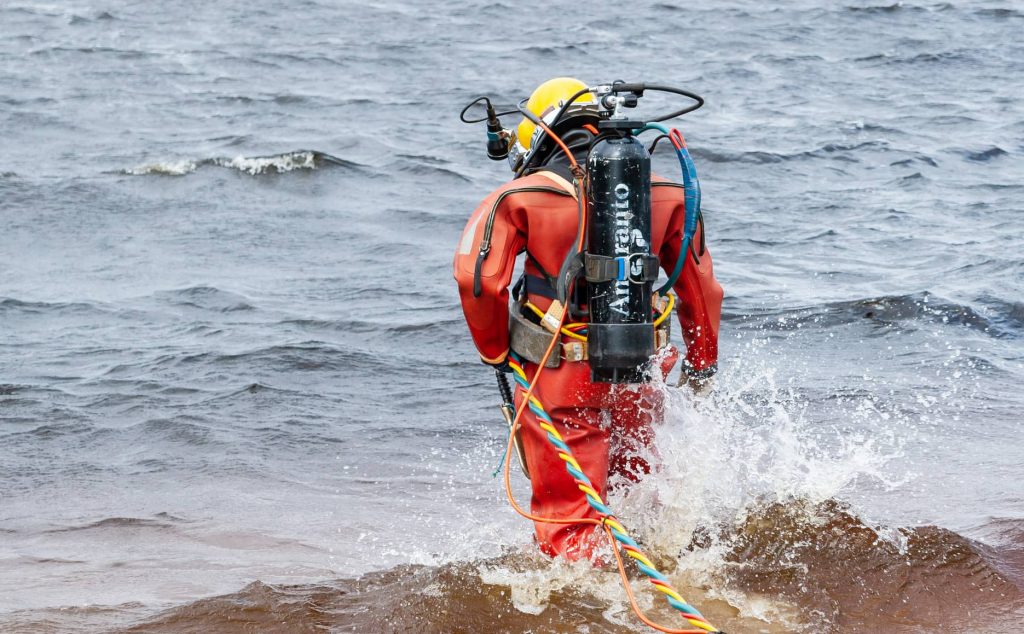
You will probably be paid hourly about 11-20$ depending on your location (we will take a look at specific areas and the income in a bit) and you will be an apprentice at first. No one is going to give you a 1000$ a day job at first. It will take years to reach that level.
While you will earn a low income at first, you will not be doing anything dangerous like deep diving. Your work for the first 3 years or so will be about learning the skills and helping your experienced colleagues that will be doing actual work.
If you make it through the first 3-5 years you will move up the ranks and become a fully experienced commercial diver. Now your earning potential will significantly improve. It is at this point that almost everything is possible and you could be earning 100k or even 300k a year depending on a lot of factors.
You can read more about the underwater welder salary expectations in general terms. But let’s take a look at some specifics before going in-depth on the differences in earnings in relation to the type of work and the area.
2021 Average Annual Underwater Welding Income
Underwater welders do either offshore or inland welding. Offshore pays a lot more. On the other hand, your experience level plays a big hand in this but the offshore rookie will earn a significantly higher salary than inland rookie commercial divers.
Let’s take a look at the big bucks career first.
Offshore Diving Career Salary
- As a rookie, you can expect anything between $40,000 and $60,000.
- After you get 3-5 years of experience you can earn between $70,000 – $100,000+.
Experienced offshore divers can earn a lot of money but this will still depend on the type of job, the depth of dive, experience, certifications, the company that hires them, the location of work and etc. We will talk about these things soon.
Type of work usually done by offshore commercial divers
Offshore underwater welders work in international waters. That’s the definition of “offshore”. Literally, anything goes, but here are some good work examples so that you get the picture:
- Cleaning subsea sites
- Oil platform and pipeline work like maintenance, installation of pipes and etc
- Inspection of chain anchor legs
- Wet welding of oil rigs pipelines
- Cruise and military ships repair and maintenance
- Drilling support
- Installation of wellheads
- Lengthy dive projects that require saturation diving and inspection (there will be a special part about sat diving in this article below)
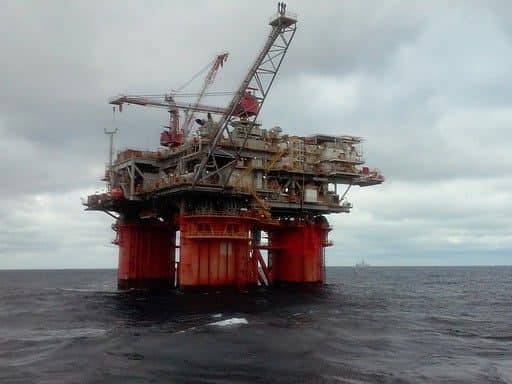
What kind of work schedule can offshore commercial diving offer?
Unfortunately, a bit inconsistent and unpredictable. That’s not always the case. Sometimes you can land a job that provides work on a consistent basis but that’s an exception rather than the rule.
Offshore commercial diver schedule typically looks like a month to month and a half in the open waters and then a week or so at home. But sometimes you could be out of work for multiple months. Your workday will usually be 10-12h shifts and in difficult conditions.
This is also not always the truth. Sometimes you may be a backup diver that will see little to no action while still being paid top dollar. But they will find some other work for you. No one gets paid unless they provide serious experience and value to the team.
This kind of work is done almost always with overtime pay. These come as additional bonuses but it typically pays very well so that is understandable as the nature of work. These jobs are no picnic but this is where the money is at and especially for saturation commercial divers.
Most of the time you will be off during the winter months. These few months it’s almost impossible to work in the deep ocean waters but the time off is also good for you. Spend some time with friends and family. You can also weld on surface if you want to make some quick buck in a welding shop.
Now let’s see the easier and less paid onshore jobs.
Onshore Diving Career Salary
Rookies can expect a salary in the range of $25,000-$40,000.
The experienced veterans with 5 years behind them can earn somewhere between $50,000-$80,000.
As you see these numbers are lower than the offshore underwater welding career. That’s because the work inland is more predictable, there are a bit more job opportunities, it’s stable and less dangerous. You will be working much closer to the hospital, the depths are not extreme and there are generally way fewer things that can go wrong.
This is still a dangerous job and that’s why the salary is big just not as big as when working in the ocean.
The example of available jobs for coastal/inland underwater welders
- Freshwater pipe wet welding
- Salvaging and recovering various types of boats
- Inspecting water towers and bridges
- Dam walls work like inspection and maintenance
- Working with various underwater structures
- Nuclear power plants structure maintenance
- Inspection of sewer pipes (work is work, right?)
- Removing decayed underwater structures
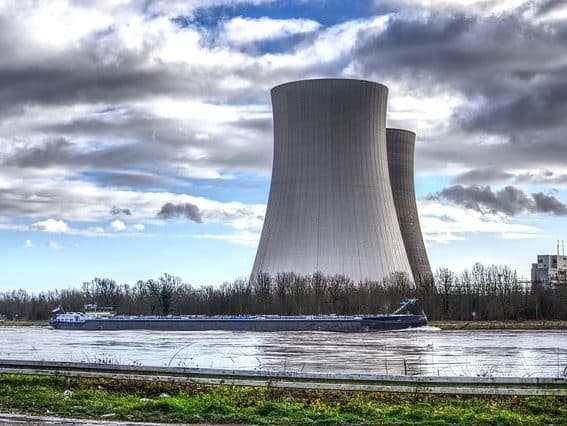
Work schedule of an onshore underwater welding career
The pay may be lower but the work is much more consistent. This is a good career choice for someone who doesn’t like waiting for and chasing after work. Once you get employed you are likely to stay there for a longer period of time. A regular 40-50h work weeks during the whole year. Much more stable than offshore welding. But there has to be more that affects the pay?
Yes. There are other factors other than offshore vs onshore. Let’s see this in more detail.
Underwater welding jobs factors to consider for a bigger salary
Now we will see how you can earn those big bucks everyone is talking about. If the stars align and you get a commercial diving job that combines multiple high-paying primary factors then you can get a high payout that will make your jaw drop.
Underwater welding / commercial diving experience
This is the number one factor. If you don’t have enough experience you can’t start earning big.
You will need to start as a rookie, fresh out of the commercial diving course and climb the ranks. Listen to your instructors and senior members of the crew and pay attention to everything. You will be a part of everything just not as a diver yet.
Once you start having your diving experience you need to have a mindset of “let me get as much experience as possible.”
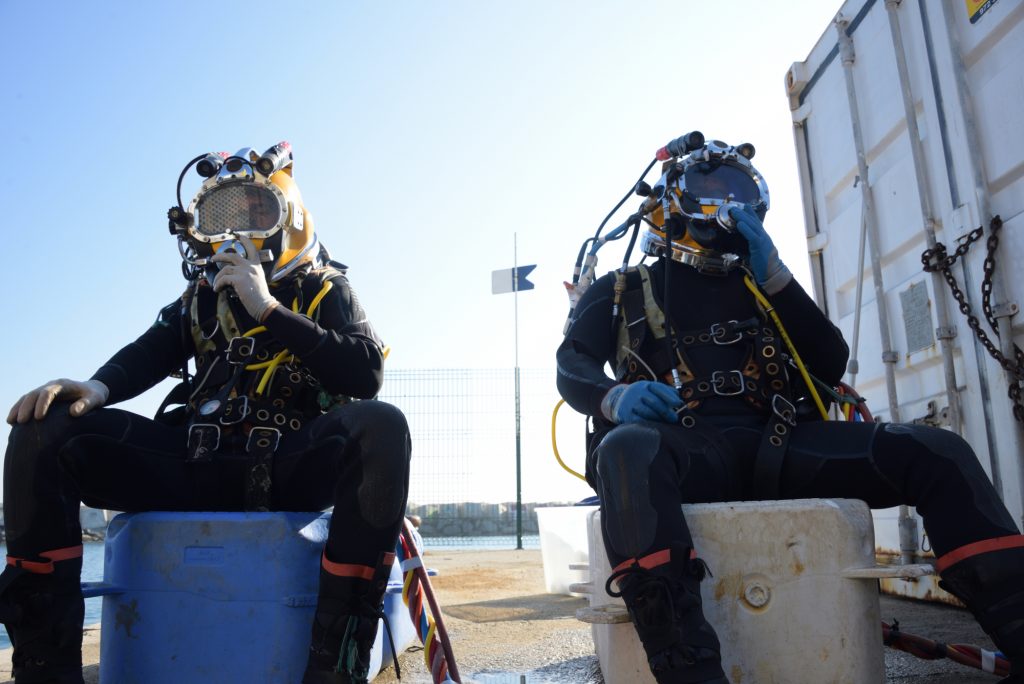
But without doing anything stupid. Know your limits and gradually improve your knowledge and capabilities.
Underwater welding career usually starts with you doing onshore as a rookie but you could also be an apprentice offshore it is just that it is not very common. After you gather enough experience doing onshore jobs, you can move on to offshore where more money is but work is less constant.
In the USA the Gulf of Mexico is where most people want to go. Thousands of oil pipeline underwater welding jobs are done every year and they are all high paying but this is why you need experience. No one will give you this kind of work if you don’t have what it takes.
Your experience and knowledge of underwater welding equipment
The diving equipment and welding equipment experience is also important and especially for more complex jobs.
When working underwater with complex tools there are protocols and things are done in a specific order. Not all equipment can be brought down at once. It is done in accordance with the job.
Some welding tasks will need you to use AC welding equipment which poses a way higher risk of electric shock than the direct current equipment.
If you have higher experience with complex equipment setup you will get paid better, plus usage of AC equipment increases the danger for the welder which also translates to higher pay.
Your commercial diver certification
Technically, you will be a commercial diver which does underwater welding.
That means that you need to get your certification from a qualified divers institute like the CDA technical institute. Certifying your skills is very important and something that your employers will be asking for.
Knowing is usually not enough for underwater welders. In order for a big company to hire you, you must have papers that verify that you know to perform certain tasks.
This is a dangerous job and I don’t think that anyone will hire you for a task that you can’t show on paper that you are able to do.
The dive depth and saturation divers
Being a saturation diver aka sat diver means getting the big bucks in offshore employment.
Only veteran divers are in this club. This is how you earn a 300k salary. Hell, you could even earn a 500k a year if you can endure the job and get a very high paying opportunity.
Saturation divers usually take anywhere from $50,000 to $100,000 a month.
But here is the reality check on these career opportunities.
In 2015, there were just 336 saturation divers in the USA. It takes being the best in order to get qualified for such jobs. I won’t discourage you from pursuing it but just know that you need to pile on years of experience.
Here is a great video to understand what is saturation diving and how it works. Basically, they do a controlled process of saturating body tissue so that they can stay under pressure for a long time and get that depth pay.
Now, you don’t have to be a sat diver to get high paying jobs. Any job below 50ft of depth will be paying by the foot and you could be looking at $500-$800 a day. No need to do saturation diving for all of these jobs.
This requires being an experienced veteran. But there you have it, the deeper you go the more money you earn. If you do get into the top leagues of sat welder divers, you will earn immense amounts but you will also be working very deep and in tough conditions.
In water conditions and the danger of the job
Typically, the worse the conditions are and the more dangerous the job is, the higher the pay. This is not always the case but I wouldn’t advise taking on a job that is more dangerous than usually without being properly compensated.
Zero visibility in certain waters can make the job very difficult to do, endure psychologically and it puts you in danger and especially when offshore. Working with high underwater currents. This will obviously make underwater welding difficult but it will also put you in danger.
If there is a higher chance of a “Delta P” hazard (ΔP) then you should be paid accordingly. Now, don’t be stupid and accept a job that violates the codes of working with delta P hazards but keep in mind that it is impossible for anyone to make you completely safe from this force of nature. So if there is a chance of being killed at least get a big buck out of it. If the employer promises safety, as they must, but offer inadequate compensation it is probably not worth you risking your life.
Here is an excellent video to demonstrate what I am talking about. Also, pay attention to that one case where the crew promised the diver that he is safe but he died. You can also read in our separate article about the underwater welder’s death rate and get more information on the specific dangers that lurk underneath the surface.
The distance from the shore when doing any offshore underwater welding
This one also plays a role in determining the amount of money you will earn. The further away you are in the ocean the more money you will earn. This is a typical scenario but not every job will honor it. It is up to you to decide if you will take it but I wouldn’t advise taking on a job that pays under industry standards.
Every team will have a medic onboard and emergency aid kits but there is very little that can be done if anything serious would happen in the middle of the ocean. If you experience multiple broken bones, organ damage or bends, you are unlikely to be saved by the onboard staff.
The further away from the shore, you get, the more time it will take for you to reach the hospital in case of an accident. At some point, you get so far away from the shore that even a helicopter ride couldn’t be fast enough to save you if you get seriously injured on the job.
Offshore underwater welding is dangerous and this has to be reflected in your salary. If it isn’t, then it’s just not worth your while. If you can earn similar money doing onshore work or surface welding then why bother, right?
Luckily, most employers will take this into consideration and offer the appropriate increase in salary when you are doing any distance jobs.
The best underwater welding jobs
Now let’s take a look at the specific jobs that pay the best. These will be mostly for offshore underwater welders but we will also discuss good inland jobs for underwater welders.
Let’s get started.
Offshore oil platform and pipeline work
There are many different things you can do for an offshore oil platform. Underwater welders are one of the essential elements of why they are able to stay in business. Hell, they couldn’t function without surface welders doing topside construction either.
Depending on the platform and all of the various factors listed above, like distance offshore, the pay can vary greatly. But these are some of the primary types of the highest paying jobs that are more readily available for offshore underwater welders.
Depending on dive methods like if you will be in a team of hyperbaric welders (dry welding techniques), saturation divers or if this will be a regular wet welding job, you will have varying grades of salary.
You could be earning $50,000 a year as a rookie or up to $300,000 if you are a veteran and a sat diver. The range is crazy so I can’t really define it for you. What I can say is that this is a place where you can find high paying jobs and especially as an experienced veteran.
Here is an excellent video where a sat guy describes his oil pipeline work with footage on the bottom. Its rare to get the clear footage so this is a good way to get some picture of what it’s like.
Nuclear Plant Maintenance Specialist
This is one of those onshore underwater welding jobs that are high paying because of the immense danger you are in.
However, technically speaking, you will be safe. There are protocols, procedures, equipment and everything else that is designed for you to go in, do the job and go out unharmed. This works really well in practice because otherwise, no one would be doing these jobs.
Still, the danger of diving into the nuclear reactor does translate to the high salary and some people even like the thrill of it.
You could expect a minimum of $60,000 per year as a nuclear diver. This is by no means a constant job so you should be free to earn more money on the side as well.
As a nuclear plant diver, you will be performing specialized welding tasks and machining repairs. You will be responsible for the replacement of steam generators, pressurizers and reactor vessel closure heads.
A lot of commercial welding divers love this career choice. Clear water (no underwater debris), the constant feeling of danger as you are in it, high pay and handling such equipment really gives you a lot of material to talk about in the bar with the guys.
While I couldn’t find a good video to demonstrate the nuclear power plant welding, here is a video of what it’s like to maintain the outside nuclear power plant infrastructure. This is a special grate gate that protects the intake pipe infrastructure from getting clogged or sucking someone inside.
HAZMAT Divers
This is not for everyone. But it pays well.
Diving in sewer pipes and similar HAZMAT environments is very dangerous, difficult, has zero visibility and usually is done in confined areas.
Some people love it. Some hate it.
You wouldn’t wanna check out in the sewer pipe. Imagine someone telling your friends and family that you didn’t make it because something happened in a sewer pipe.
Well, that’s very unlikely to actually happen but it is in the realm of possibility and that’s why many people are turned off by this line of work.
On the other hand, many divers find HAZMAT water work a very thrilling activity. After all, people that choose to do these jobs are the reason why the rest of us can enjoy the functional infrastructure and not think about what would it be like to deal with toxic waste.
Of course, these jobs are not always about sewer systems but mostly that’s what these divers do.
These divers can expect an average of about $60,000 a year. There are many high paying jobs here so it is worth at least taking a look.
This video is a great demonstration of HAZMAT water entry and the post work decontamination by the diver’s institute.
The video below demonstrates on an example of what its like to work in a sewer. Keep in mind that this is a basic job that is dangerous but there are way worse jobs than this.
Marine Pipefitter
This is a great entry level job for an underwater diver.
However, you will need a very good understanding of shipboard piping systems. This includes the installation, repair, maintaining and fabrication of highly specialized fixtures, supports, targets and jigs.
A very rewarding job and especially for those with beginning experience. You could be looking at a $60,000 starting salary. This is a great way to enter the underwater welding industry and learn more about complex mechanical systems. This knowledge will be helpful in everything you do later on.
What are the best locations in the US and abroad for underwater welders
The jobs we talked about above are just some of many that you could be doing. We can’t cover all of them because this article would turn into a book.
What we can do is talk about the best places to work in the US and surrounding waters.
Some people love to travel and see the world while others would rather stay and work around the US or perhaps only work offshore and go back.
I will try to paint the wider picture so that most of your questions get answered.
The USA and surrounding waters
Not surprisingly the highest concentration of underwater welding jobs is in the area of Gulf of Mexico but there are other states as well.
The places with the most jobs are Florida, Tennessee, Louisiana, Texas, Virbinia, New York, New Jersey, Alaska, Washington state and Vermont per the US Bureau of labor statistics.
In the US, the average annual wage for underwater welders is $ 71,850 with the largest annual mean wage coming from these states:
- Washington state $ 132,410
- California $ 116,720
- Alaska $ 100,140
- New Jersey $ 86,960
- New Hampshire $ 77,460
The US Bureau of Labor Statistics calculates the annual mean wage by multiplying the hourly mean wage with a standard full time employment hours figure of 2,080 hours. There is room for error there, so these numbers are not really set in stone if you are not full-time employee.
Now, these are some of the averages. You could earn more or less depending on all of the factors we discussed. This is not a job where earnings are easily pinpointed. No one can tell you exactly how much you will earn because with so many variables in play everything can vary drastically.
This is an excellent video which talks about earning potential in the Gulf of Mexico, the rest of the US, and when working abroad. However, it also talks about many other things but everything is useful so I suggest you see it because the person being interviewed knows what they are talking about.
The rest of the World
There are underwater welding jobs all over the world but if you are a US person it is more practical to work for a US company that is contracted for work abroad. Otherwise you will need to obtain work permissions, visas, certifications and etc.
- Canada is a good place to work because of many similar standards and work methods. In Canada, you will find many jobs in the marine industry, ship maintenance, underwater constructions, HAZMAT jobs and etc.
- The United Kingdom has a very developed underwater welding industry. There are hundreds of companies offering commercial diving services and they are mainly concentrated in the energy sector. Both oil/gas and renewables. If the idea of the installation of wind farms sounds interesting to you then the UK could be for you. North sea is an excellent place to get a high-paying job.
- Russia’s underwater welding operations typically focus on subsea construction, ship vessel repair, and maintenance. You could also do sat diving here and work in HAZMAT.
- Malaysia has more jobs available than the industry can keep up with. But working in a completely different part of the world has its cons. Still, there are many available jobs in the work of subsea pipeline work, underwater construction, and others.
- Japan is a developed country but its needs for commercial diving are not completely met. If you don’t mind working that far from home it could be an interesting adventure. Their underwater welding needs are mostly focused on civil construction, subsea steelwork, pipeline, dredging, and others.
There are of course more opportunities worldwide and some of them pay better than the others.
It is a bit pointless to write the numbers for these countries listed above. There are so many variables that can influence how much you would get paid if you were to be directly employed by them that it is very difficult to give you an estimate. This is a small industry and things vary significantly.
The best you can do if you want to work abroad is to be employed in a US company. That way you will get paid in the US rates and let your company deal with the price negotiations.
Conclusion
This was a general overview of the jobs available to the underwater welders, what you can expect in commercial diving as a welder and what influences the amount of money you will take to the bank.
If you take one thing from this article let it be this:
There is no easy money here. Years of experience in brutal conditions and putting your life in increased danger will result in more money. If you want a simple life this is not gonna be for you.
Surface welding can be just as rewarding. You are unlikely to earn as an sub-water welder but you will be in much safer conditions. Long term, as a surface TIG pipe welder for example, you will earn as much as a HAZMAT onshore welder. So if it’s just about the money for you, it’s probably not worth getting into it.
If you want the money and the thrill of the career then this could be for you, if you can take it that is.
Resources:
- Underwater Welding: One of the Most Dangerous Occupations in the World at interestingengineering.com
- The Fusion of Danger and Adventure at nupolytech.org
- Most Common Commercial Diving Locations In The US at diversinstitute.edu
- Occupational Employment and Wages, May 2020 49-9092 Commercial Divers at U.S. Bureau of Labor Statistics
- www.commercialdivingacademy.com – Commercial diving academy in the USA




